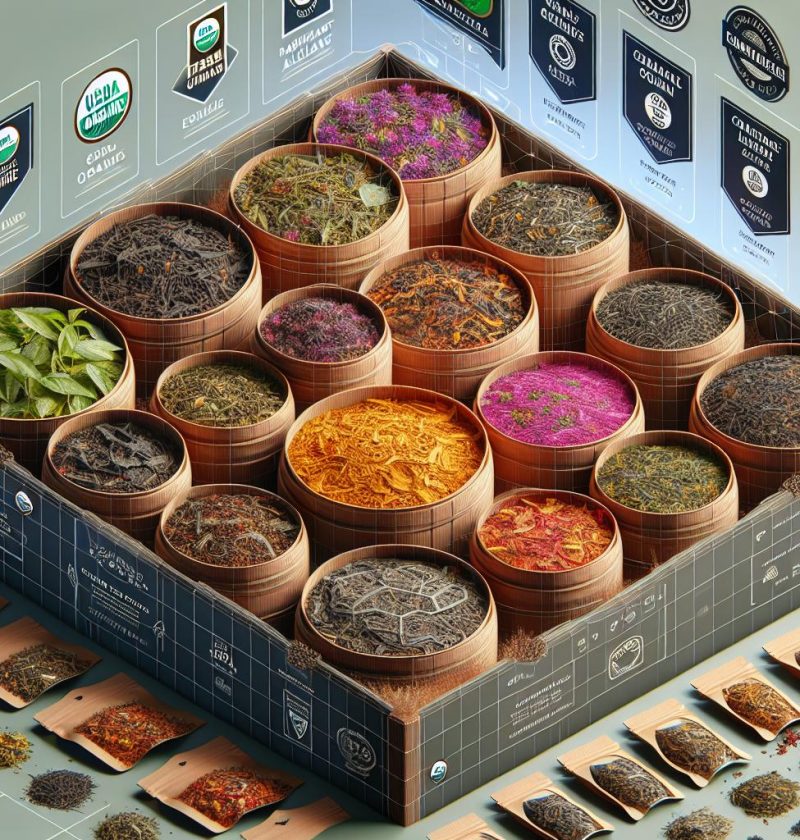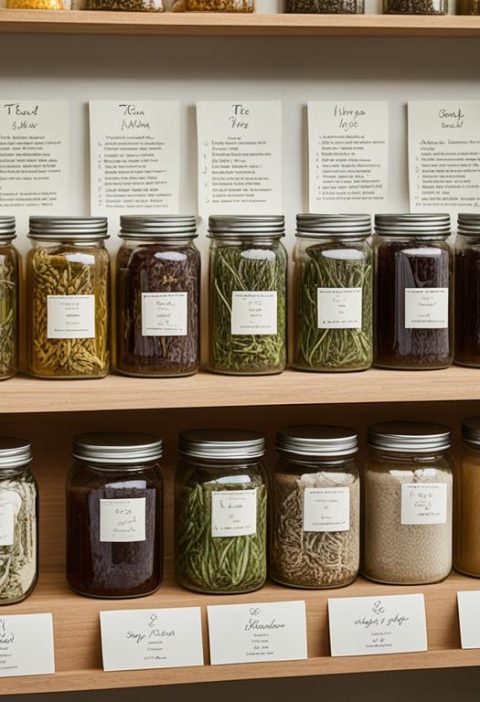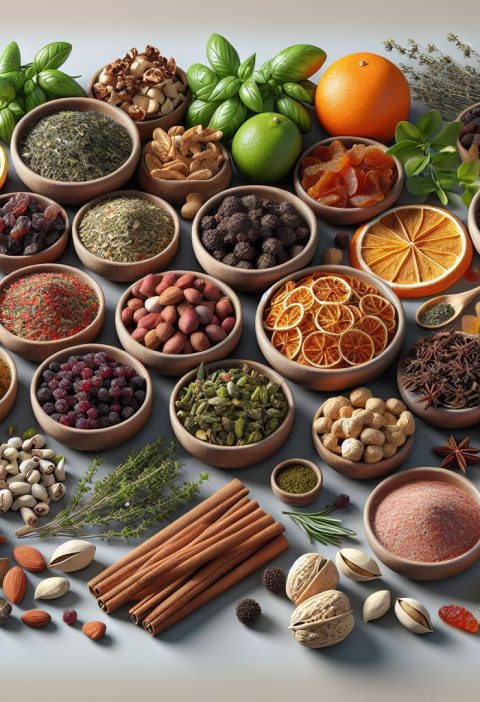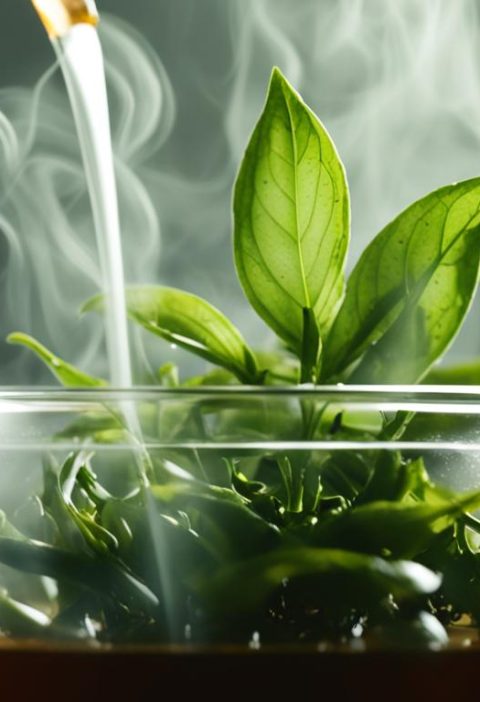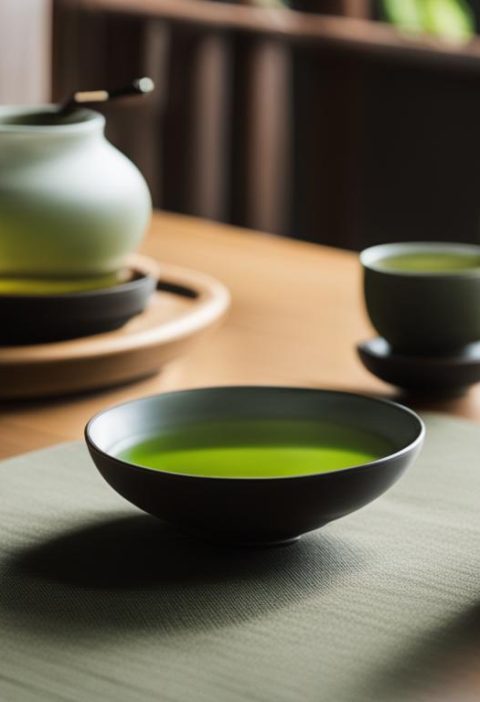So, we’re diving into the world of sustainable loose leaf tea sourcing. When it comes to this aromatic and flavorful beverage, the journey from leaf to cup is crucial. We’re on a mission to uncover the secrets of finding the best sustainable loose leaf teas that not only tantalize our taste buds but also contribute positively to the environment. Let’s explore the art of selecting teas that are not only delicious but also ethically sourced and environmentally friendly.
In our quest for sustainable loose leaf tea, we’ll navigate through the vast tea landscape, deciphering labels, certifications, and ethical practices. Join us as we unveil the tips and tricks to identify teas that align with our values of sustainability and quality. Together, we’ll unravel the world of sustainable loose leaf tea sourcing, empowering ourselves to make informed and eco-conscious choices for a delightful tea-drinking experience.
Understanding Sustainable Loose Leaf Tea
When it comes to sustainable loose leaf tea, it’s essential to grasp the intricate details that make a significant impact on our environment and well-being. Let’s delve deeper into the world of sustainable loose leaf tea to understand the nuances and make informed choices.
For Beginners: Navigating the Basics
- Types of Tea Leaves: Green, black, white, oolong – understanding the basics will set the foundation for your sustainable tea journey.
- Locally Sourced Teas: Look for teas sourced from local farms to support your community and reduce carbon footprints.
- Certifications: Keep an eye out for organic, Fair Trade, Rainforest Alliance certifications for teas that align with sustainability practices.
For Intermediate Enthusiasts: Exploring Ethical Practices
- Direct Trade: Opt for teas that follow direct trade practices to ensure fair wages and ethical sourcing.
- Packaging: Choose teas that come in biodegradable packaging to reduce waste and promote sustainability.
- Carbon Footprint: Consider the carbon footprint of tea transportation to make environmentally conscious choices.
- Regenerative Farming: Look for teas sourced from farms that practice regenerative farming for a holistic approach to sustainability.
- Biodiversity: Support teas that promote biodiversity in their cultivation to preserve ecosystems.
- Water Conservation: Opt for teas from regions that prioritize water conservation practices for a sustainable future.
Navigating the landscape of sustainable loose leaf tea requires attention to detail and a commitment to choosing teas that align with our values. By understanding the nuances of sustainability in tea sourcing, we can make conscious decisions that benefit both the planet and our tea-drinking experience.
Benefits of Choosing Sustainable Options
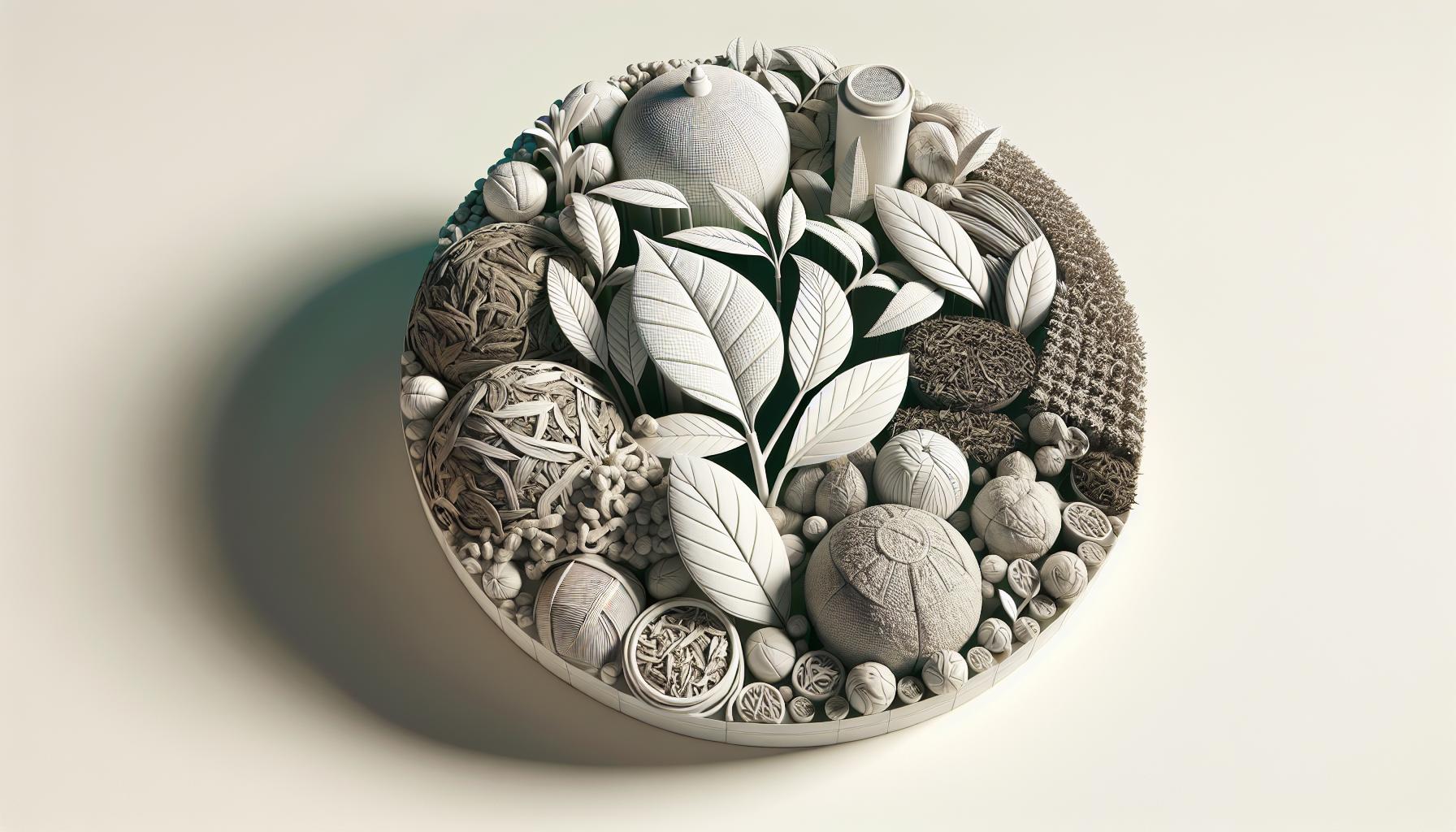
Grains have a long post-cooking shelf life, but you shouldn’t wait until they become old to get a move on. In the case of rice, there are many ways to turn your leftovers into tomorrow’s side dish or main entree. As arguably the most prominent foodstuff in the world, cuisines across the globe use rice in a multitude of delicious ways.
For Beginners: Discovering the Basics
- Start by exploring the world of loose leaf tea and its environmental benefits.
- Learn about the positive impact of sustainable tea sourcing on ecosystems.
- Understand how choosing sustainable options supports ethical farming practices.
For Intermediate Enthusiasts: Enhancing Your Tea Experience
- Delve into the specifics of certifications and labels to make informed decisions.
- Explore the concept of direct trade and its significance in sustainable tea sourcing.
- Consider the environmental footprint of tea packaging and transportation.
- Dive deep into regenerative farming techniques within the tea industry.
- Explore the role of biodiversity in promoting sustainable tea cultivation.
- Learn about innovative water conservation methods in tea farming.
Deciphering Labels and Certifications
Grasping the intricate world of sustainable loose leaf tea starts with understanding the significance of labels and certifications. Whether you’re just dipping your toes into the sustainable tea realm or a seasoned connoisseur, being well-versed in these indicators is key to making informed choices.
For Beginners: Navigating the Basics
- Organic: Look for the USDA Organic label, indicating the tea is grown without synthetic pesticides or fertilizers.
- Fair Trade: Opt for teas certified by Fair Trade organizations, ensuring fair wages and ethical working conditions for tea workers.
- Rainforest Alliance: This certification signifies sustainable farming practices, biodiversity conservation, and support for local communities.
- Carbon Neutral: Seek teas from companies committed to reducing their carbon footprint for a more environmentally friendly choice.
For Intermediate Tea Enthusiasts: Delving Deeper
- Direct Trade: Explore teas sourced through direct trade relationships for transparency and fair compensation to growers.
- Transparent Sourcing: Choose brands that disclose details about their tea sourcing journey, emphasizing traceability and accountability.
- Packaging: Select teas with biodegradable or recyclable packaging to reduce environmental impact.
- Water Usage: Consider brands implementing water-efficient practices in tea cultivation to support conservation efforts.
- Regenerative Agriculture: Support teas cultivated using regenerative farming practices, promoting soil health and ecosystem restoration.
- Biodiversity Conservation: Look for teas from farms that prioritize biodiversity, enhancing ecological balance within tea plantations.
- Water Conservation: Explore innovative methods adopted by tea producers to minimize water usage and promote sustainable irrigation practices.
- Certification Combinations: Opt for teas holding multiple certifications, combining organic, Fair Trade, and other labels for a comprehensive sustainable choice.
Unraveling the complexities of tea labels and certifications empowers us to make socially responsible and environmentally conscious choices, ensuring a flavorful cup of tea with a positive global impact.
Ethical Practices in Tea Sourcing
For Beginners: Understanding the Basics
- Look for USDA Organic certification to ensure the tea is grown without synthetic pesticides.
- Opt for Fair Trade labels to support fair wages and better working conditions for tea farmers.
- Choose teas with the Rainforest Alliance seal for environmentally sustainable practices.
For Intermediate Enthusiasts: Going Beyond the Basics
- Explore teas labeled with Direct Trade for transparency in sourcing and ethical relationships with producers.
- Select brands that prioritize Eco-Friendly Packaging to minimize environmental impact.
- Consider teas produced using Water-Efficient Practices to support sustainable water usage.
- Look for teas from farms practicing Regenerative Agriculture to promote soil health and biodiversity.
- Support brands involved in Biodiversity Conservation efforts to protect ecosystems.
- Choose teas from sources that emphasize Water Conservation for responsible water usage.
Important: By prioritizing ethical and sustainable practices in tea sourcing, we contribute to a more socially responsible and environmentally conscious tea industry.
Tips for Selecting the Best Sustainable Teas
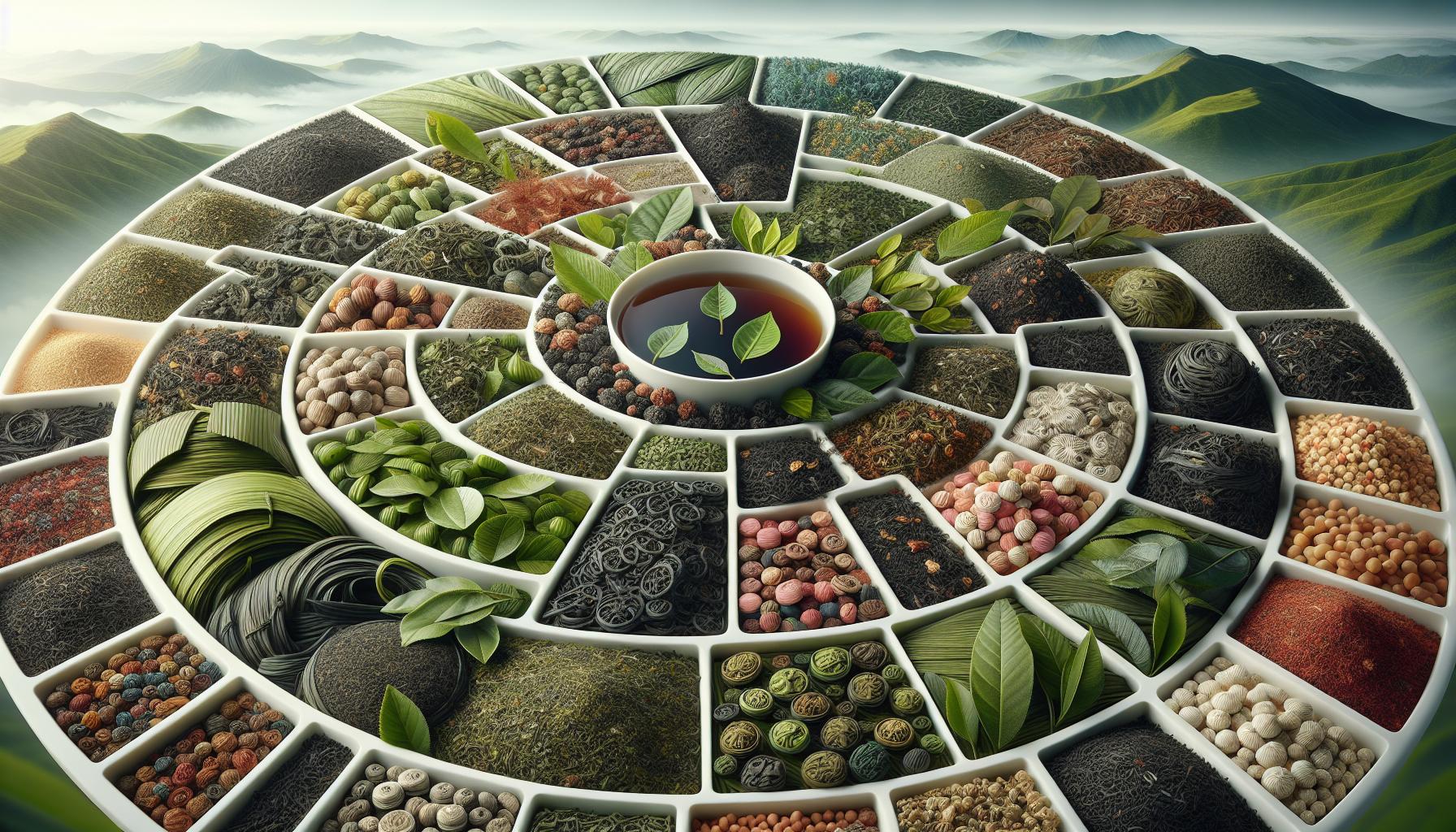
For Beginners: Mastering the Basics
When you’re new to sourcing sustainable loose leaf tea, focus on these key points:
- Look for USDA Organic, Fair Trade, and Rainforest Alliance labels for ethically sourced teas.
- Start with reputable tea companies that prioritize sustainability in their sourcing practices.
- Consider purchasing sampler sets to try a variety of sustainable teas before committing to larger quantities.
For Intermediate Enthusiasts: Enhancing Your Selection
For those with some experience in sustainable tea sourcing, consider these tips:
- Explore teas from companies that practice Direct Trade for a closer connection to the tea’s origins.
- Choose teas with Eco-Friendly Packaging to reduce environmental impact.
- Support tea producers that implement Water-Efficient Practices to conserve water resources.
For Advanced Tea Connoisseurs: Fine-Tuning Your Choices
If you’re an expert in the world of sustainable teas, take your selections to the next level:
- Seek teas produced through Regenerative Agriculture to ensure soil health and biodiversity.
- Look for teas that prioritize Biodiversity Conservation to support ecosystem sustainability.
- Opt for teas sourced from farms that prioritize Water Conservation through efficient irrigation methods.
Remember, prioritizing sustainable practices not only enhances the quality of your tea but also contributes to a more socially responsible and environmentally conscious tea industry.
Conclusion
When it comes to sourcing sustainable loose leaf tea, it’s crucial to consider various factors based on your expertise level. Whether you’re a beginner, intermediate, or advanced enthusiast, prioritizing sustainable practices like USDA Organic, Fair Trade, Direct Trade, Regenerative Agriculture, and more is key. By choosing teas that align with these ethical and environmental standards, we not only elevate our tea-drinking experience but also support a more responsible tea industry. Let’s continue to make conscious choices that benefit both ourselves and the planet as a whole.
